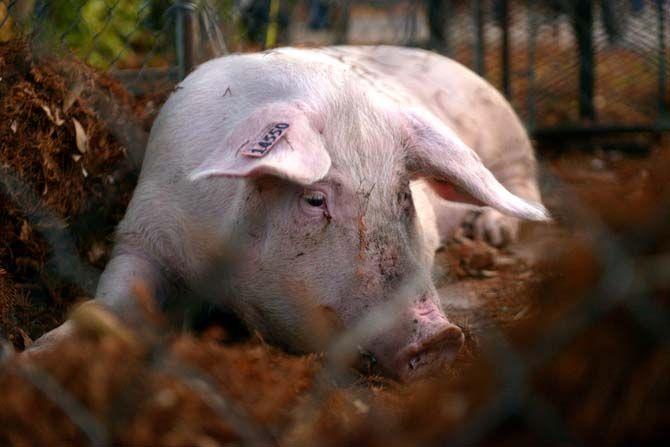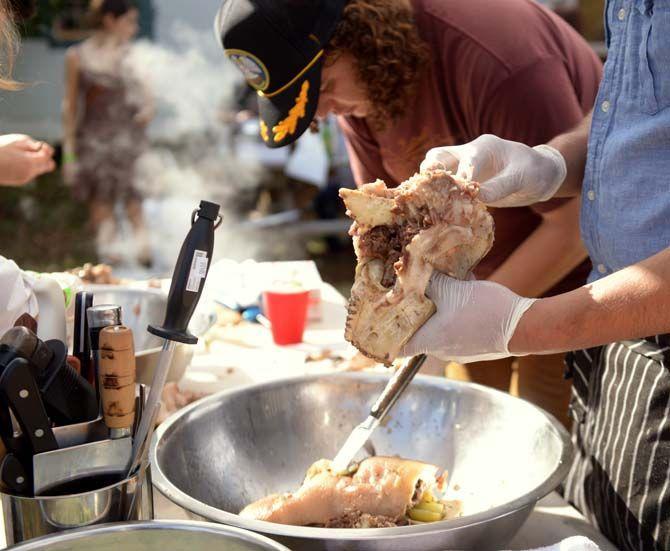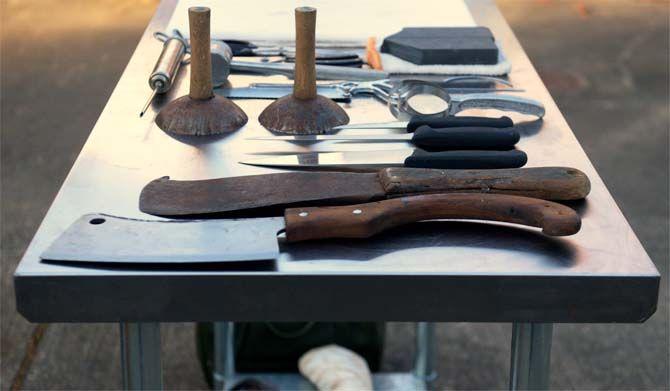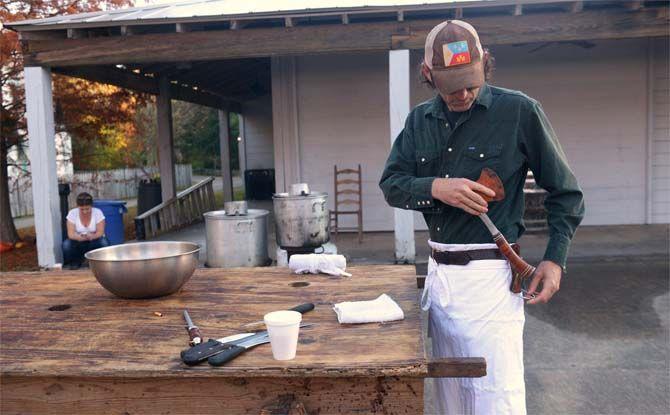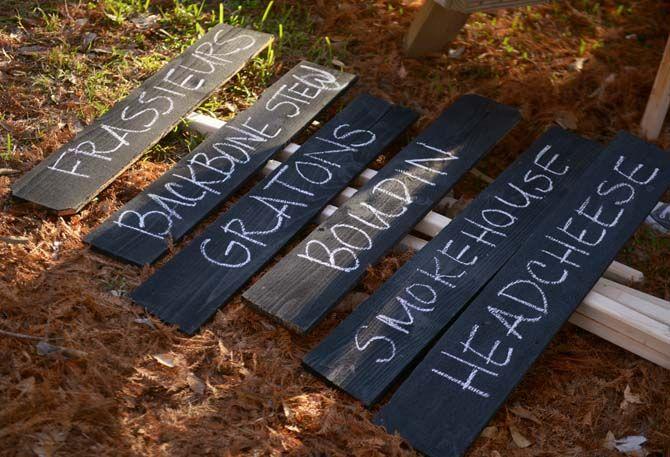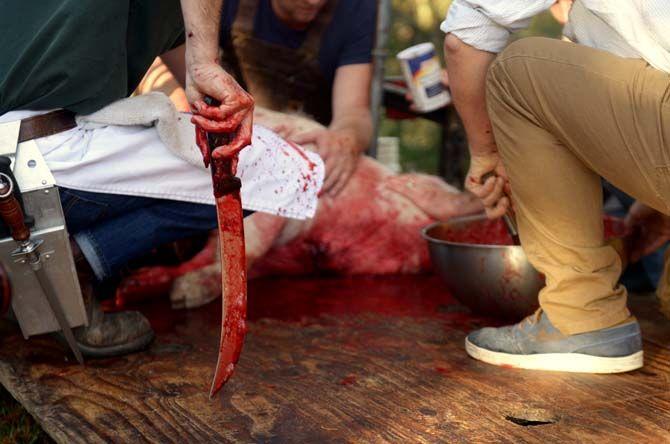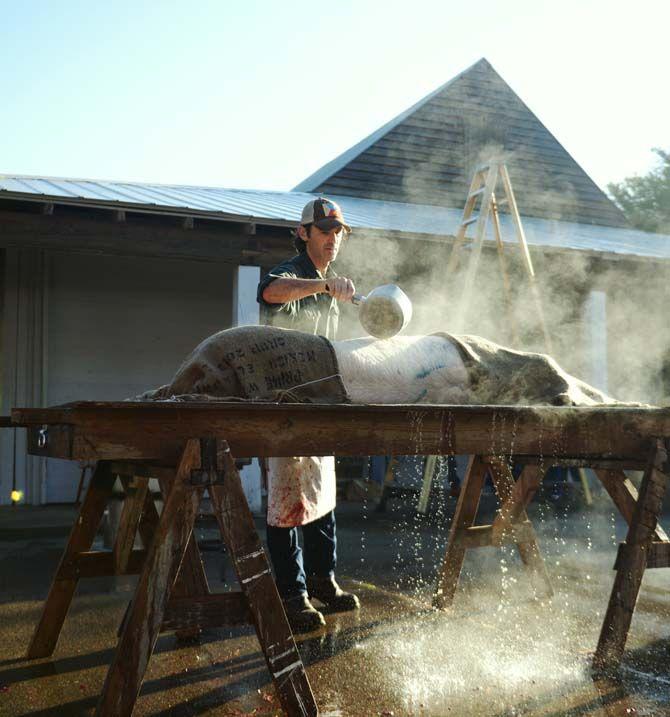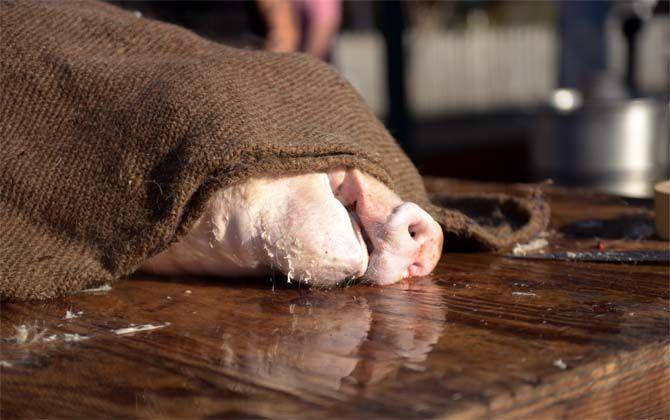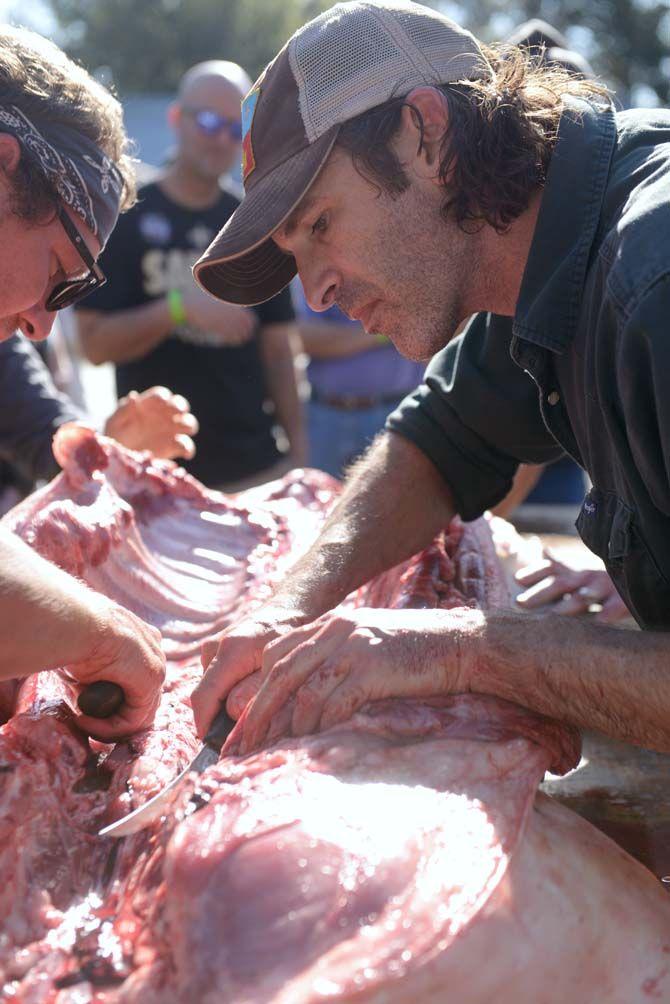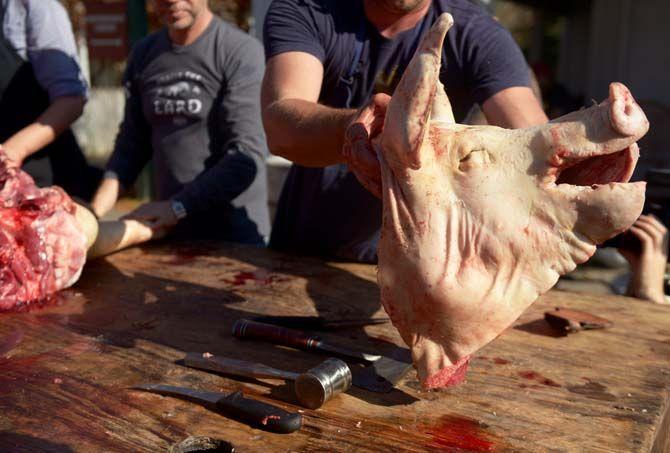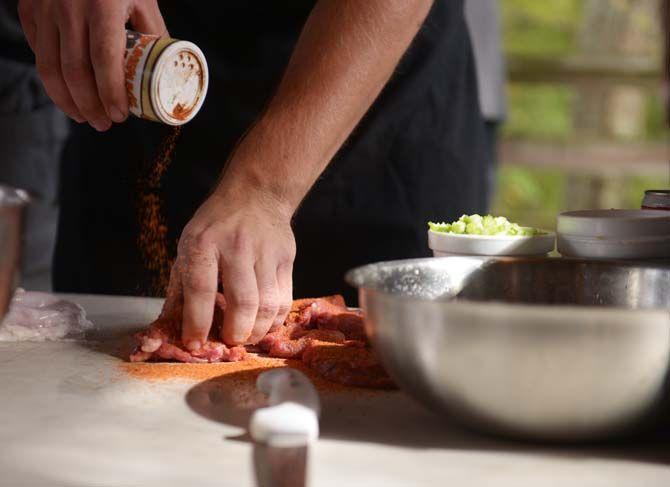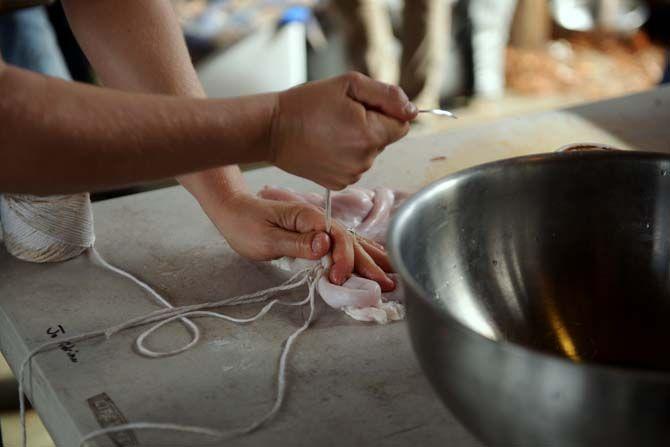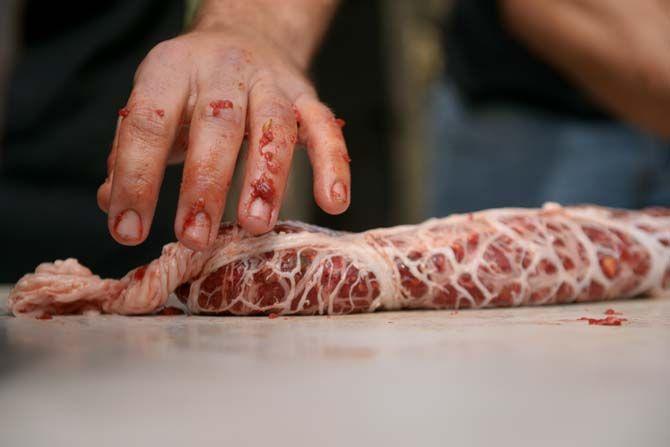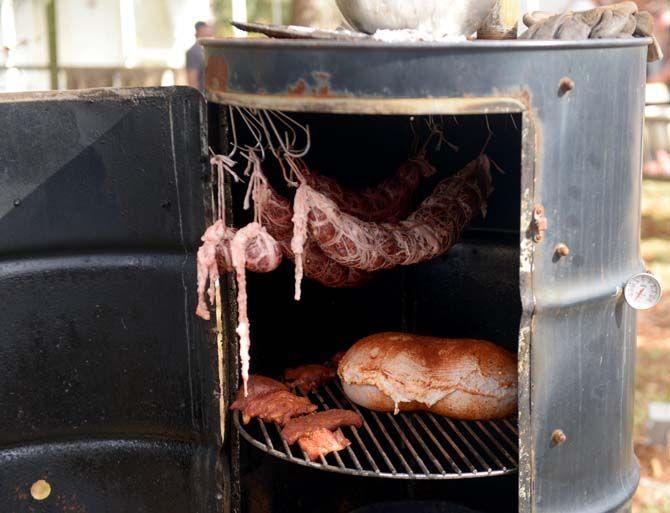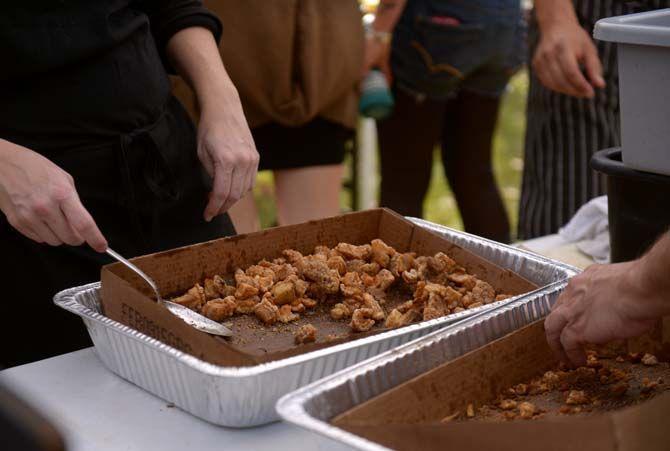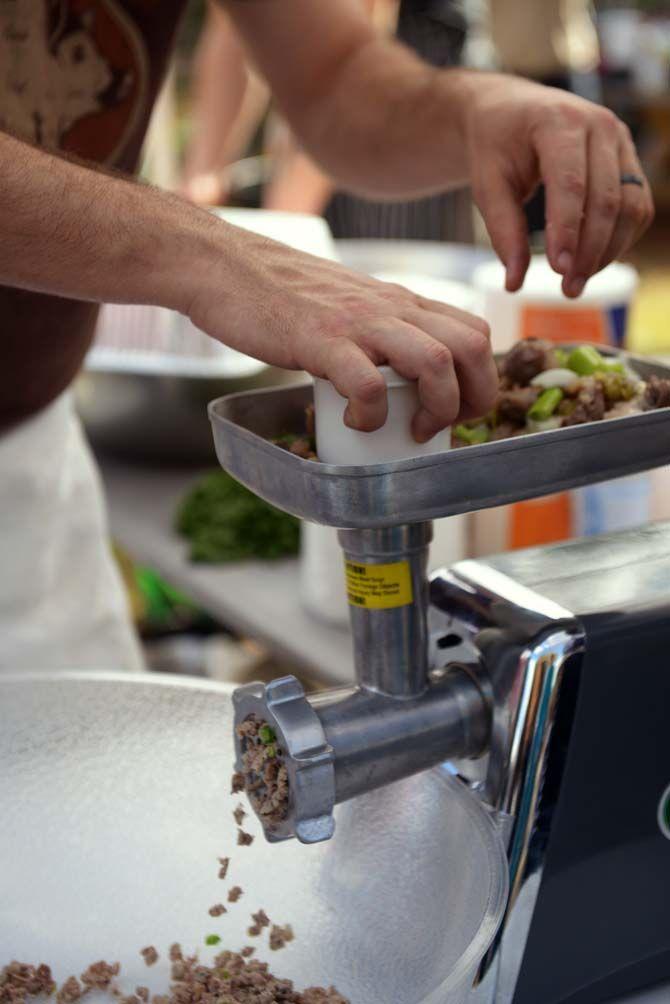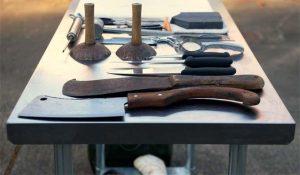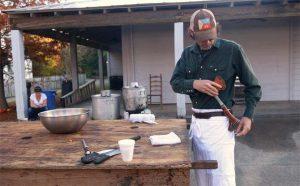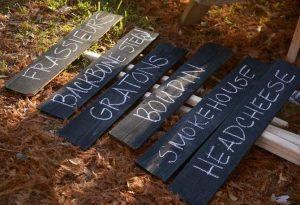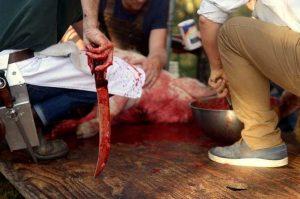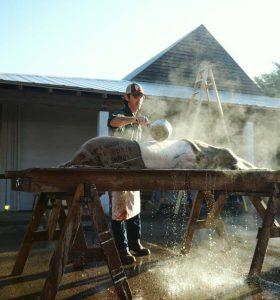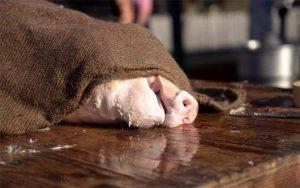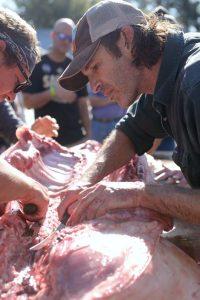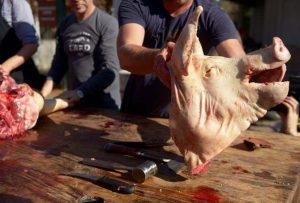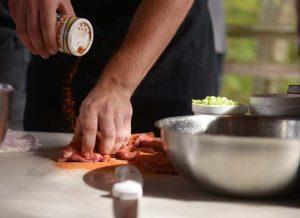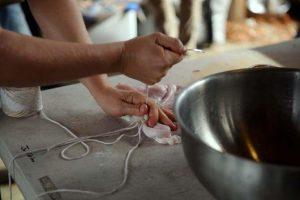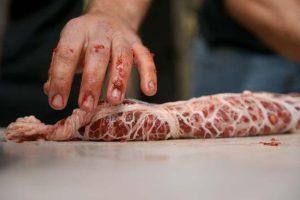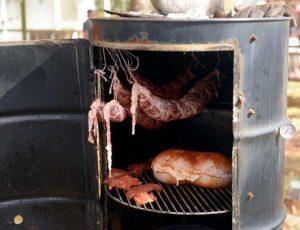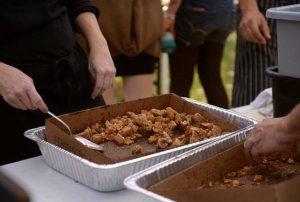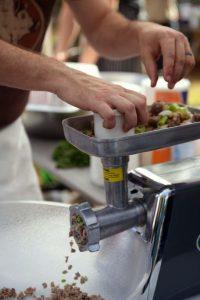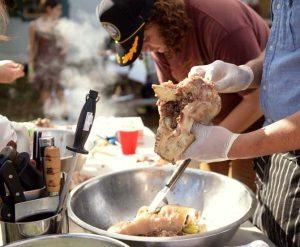Tradition comes into play when discussing all forms of action in everyday life. It dictates both the “correct” way to do something and whether something should be done at all. In Louisiana, old traditions are shifted to make way for new ones.
Toby Rodriguez’s business is one example of a Louisiana tradition merging with today’s fixation on freshness and health.
Rodriguez aims to keep a Louisiana tradition alive and well. The boucherie, French for “butchery,” is a longstanding social event or a party filled with food and drink where the central experience is the slaughtering of a live pig, which is then butchered and prepared in a variety of dishes for patrons.
Rodriguez demonstrated the art of the boucherie Sunday at Vermilionville in Lafayette for the second annual Le Boucherie Merci, a nod to the traditional boucheries in which hogs are butchered.
Butchering an entire pig is no small task. The work it takes to process the animal as well as cook it causes typical boucheries to last throughout the day. Attendees usually stay for the entire event, rising early for the initial killing and then helping the cooks utilize each and every part of the animal.
Rodriguez’s service, Lache Pas Boucherie et Cuisine, brings the boucherie tradition to the modern age with his own crew of butchering specialists who help him to make a lively all-day affair out of an antiquated culinary method.
For Rodriguez, a boucherie helps bring people closer to nature and the animals we kill for food. Though boucheries exhibit the art of butchering, Rodriguez’s focus on modern quality helps to ensure a delicious array of traditional dishes.
Lache Pas’ team of chefs and aids work in chorus to create a slew of distinctive Louisiana meals. All parts of the pig are used. Usual boucherie dishes include a rice- and meat-filled sausage called boudin, a backbone stew, an organ soup named frassieurs, head cheese and fried portions of flesh known as cracklins. These colloquial entrées are prepared alongside more mainstream foods like smoked sausages and loin.
“That’s the traditional breakdown,” Rodriguez said. “These are the things that were made due to necessity and preservation. Every one of these dishes … was born in efficiency. You don’t throw a head away. You’re going to boil it down … and you make a cheese with it.”
Because Rodriguez is concerned with the preservation of the boucherie tradition, it’s appropriate that his service is named “Lache Pas,” which is a Cajun French phrase meaning “Don’t give up.” Rodriguez has been professionally performing for the last five years, though he learned the craft growing up in Breaux Bridge.
“We share a planet with them,” Rodriguez said. “It’s something that we put pride into. It’s our crop. It’s our livelihood. Just because we’re consuming them doesn’t mean we should have less respect for their deaths. It’s a living being just like your mother, father or child.”
As an experience, a boucherie employs different elements of Louisiana culture, specifically religion and music. Before the slaughter, a short prayer is said to give thanks for the pig’s sacrifice. During the public butchering, a small band performs Cajun songs.
Rodriguez’s decision to work with Lache Pas as a professional service was born out of wanting to answers requests for the food and entertainment the event provides for communities. After several presentations, more and more people became interested in seeing Lache Pas’s work in the flesh.
“I had people who would say, ‘Would you come to Alaska and do this?’” Rodriguez said. “We would talk about a price and they would fly me up to Alaska. The more that it got seen on social media, the more people wanted it.”
Since a boucherie involves a lot of people, Lache Pas’ services are used to bring together communities and instill Cajun culture in people young and old. With interest in Cajun French also slowly making a return, Lache Pas supplies locals with a look into the past lives of Louisiana’s natives.
Along with an aim to maintain cultural pride and interest, the boucherie reinforces Rodriguez’s focus on the freshness of food and the farm-to-table movement that promotes a healthy relationship between farmers and consumers.
“I think that it promotes a part of our culture that shouldn’t die,” Rodriguez said. “It’s part of our survival. I also think it reminds people of where their food actually comes from. It reminds us of where we come from. It’s a very grounding experience.”
For people on the outside looking in on Louisiana culture, the process of a boucherie could be perceived as more of an outdated, barbaric act rather than a bonding experience among neighbors. Rodriguez said he sees the out-of-state perspective as important for breaking misconceptions about Louisianians.
“I think it’s giving a correct interpretation of who we are,” Rodriguez said. “F— stereotypes.”
Even though boucheries are the remnants of a time long passed, pulling them off is not a small job. Today, the raising of a pig combined with the time and manpower needed to process the meat costs a considerable amount of money. For most families, boucheries are now reserved for special occasions like graduations and family reunions.
Despite this financial roadblock, Rodriguez urges Louisianans to pursue their own background’s significance.
“Just be involved in some kind of way,” Rodriguez said. “Just take part. Get to know what the culture is, not just what it has been or what it came from, but where it’s going. Be part of that evolution.”
You can reach Gerald Ducote on Twitter @geraldducoteTDR.
Butcher aims to keep Louisiana tradition with boucherie
December 1, 2014
The pig used to cater La Boucherie Merci Sunday, November 30, 2014 in Vermillionville, La.


